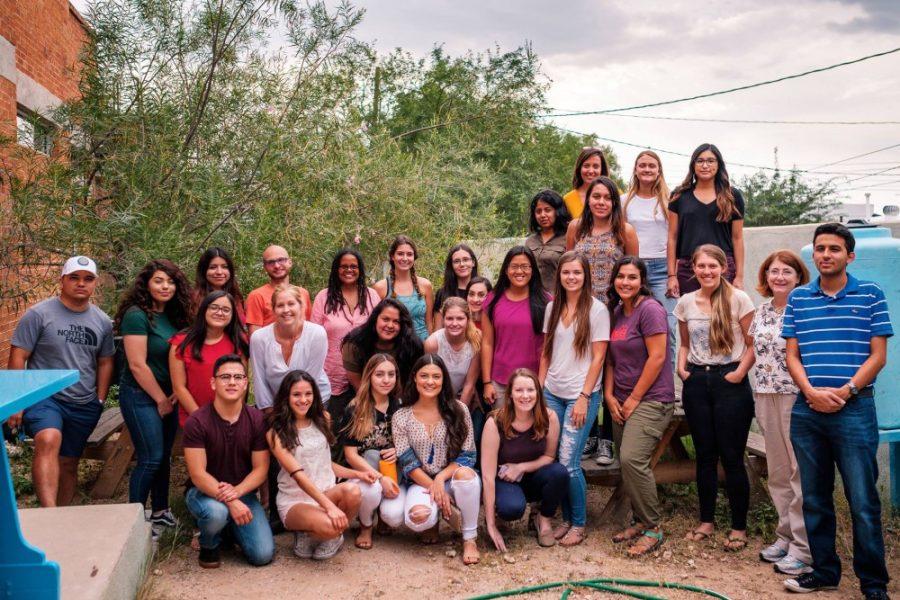The University of Arizona Department of Spanish and Portuguese has developed the Critical Service Learning Program, which gives students firsthand volunteer experience in complex issues surrounding immigration, the militarization of the U.S.-Mexico border and the criminalization of border communities.
Much of the program’s success is due in part to a specific course: SPAN 480 Service Learning, taught by professor Ana Cornide.
Cornide received her bachelor’s and master’s degrees in Spanish and Latin American Literature from the Universidad Complutense de Madrid. She is now an assistant professor in cultural studies and critical service learning with the UA Spanish and Portuguese Department.
Cornide emphasizes the importance of her students integrating theory and practice, developing leadership skills and connecting more effectively with the Tucson region.
RELATED: In Transit/En transito exhibition explores migration
Held as a weekly seminar, the course teaches critical thinking and a deeper understanding of cultural diversity and how to contribute positive social change in the community.
“Through direct community engagement, I aim to expose my students to the necessary relationship between intention and action, and develop their sense of the possibility of social change,” Cornide wrote in an email. “As a professor in the College of Humanities, I aim to develop students’ skills as leaders in their own communities and turn them into the new generation of critics and cultural creators.”
Since 2014, Cornide’s students have participated in a wide range of organizations that made a positive impact in the Tucson community. Cornide said she’s established relationships with 40 organizations that work with areas ranging from education to public health to law. Cornide has also supervised over 130 internships and offered a variety of volunteer opportunities for students.
Some of the organizations that students have participated in include the International Rescue Committee, United Way of Tucson, CODAC and El Rio Community Health Center.
This semester, one of the volunteer opportunities was a three-day expedition with a local organization called BorderLinks, which helps facilitate educational trips around the Arizona-Sonora region. The organization works to raise awareness about current immigration policies and the impact of the border between communities.
During the Sept. 8–10 weekend trip, 23 to 25 students volunteered and learned specifically about the criminalization of migration. Cornide said she hopes to continue bringing students on this trip each semester.
Sergio Salguero, a senior majoring in neuroscience who participated in the BorderLinks trip, said that during the weekend volunteering trip, they went to a detention center controlled by U.S. Immigration and Customs Enforcement to talk to detainees in Florence, Arizona.
“You hear these things being talked about in politics, but there is never a face linked to the issue, unless you see someone personally affected,” Salguero said. “When we were finally able to talk to a few detainees, they were so happy to have their stories told.”
RELATED: Film at the Fence brings cinema to the border
Nick Molinary, a senior majoring in Latin American studies and Spanish, was also a volunteer on the three-day trip with BorderLinks.
“The Border Control and private prison industries is a profitable security industrial complex that makes money off of incarcerating and detaining migrants,” Molinary said. “Many do not have basic human rights and are vulnerable to a form of modern-day slavery. It’s so easy to remain indifferent when it doesn’t affect you. What is going on right now is a historical crime that will eventually be recognized.”
Molinary mentioned the importance of language in how people view migration.
“Discourses and the language that we use can begin to articulate another vision of viewing migration and also seeing the reality of injustices that are being perpetuated against migrants,” Molinary said. “As college students, it’s important to be educating and informing yourself about the injustices and human rights of others.”
Follow Savanah Modesitt on Twitter









